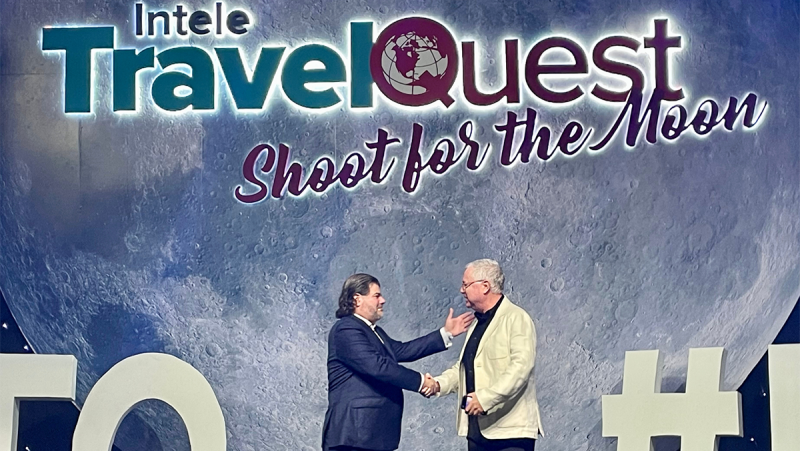Travel Agent this week debuted its “Travel Trends & Advisor Insight Report,” in which it revealed sales are up for over half (55 percent) of travel advisors compared to last year. Of those that reported sales were up through September 2023 versus the same period in 2022, just over four in 10 said sales were up 16 to 30 percent, while another one in 10 said that same-store sales were up 51 percent or more.
In our research we also learned that clients have some interest in sustainable experiences but are only willing to pay marginally more for them (up to 10 percent). Rather, clients are more likely to spend money on hotel accommodations (66 percent), air travel upgrades (47 percent), adventure/active tours (44 percent) and culinary tours/dining experiences (41 percent).
Looking to the year ahead, nine of 10 United States Tour Operators Association (USTOA) members (92 percent) anticipate growth in sales, with two-thirds (63 percent) of those respondents forecasting a “boom year.” USTOA’s tour operators also recounted healthy growth for 2023, with 94 percent of respondents reporting improved sales, with the remaining 6 percent reporting that 2023 sales numbers remained flat from 2022. This year, close to nine out of 10 members (86 percent) increased their staffing levels.
In other good news, research from Paysafe found that nearly half (49 percent) of consumers worldwide are confident that their financial situation will improve in the coming year. Optimism is particularly pronounced among Millennials and Generation Z, with 57 percent of each group expressing confidence in their near-term financial future. However, consumers acknowledge improvement will require more proactive measures as they manage high living costs and their money differently. The research also revealed a shift in how consumers plan to allocate their disposable income. Over half of Americans (51 percent) are opting to spend less on physical goods, instead prioritizing spending on experiences, even as costs rise.
A Continued Focus on Sustainability
In a separate study by the USTOA, it found that more than half (55 percent) of its tour operator active members have a formal, documented sustainability strategy. More than a third (39 percent) of USTOA tour operators have an informal (not yet documented) strategy. Roughly half (45 percent) of USTOA tour operators currently use sustainability messaging in consumer-facing marketing/sales materials, while more than one third (37 percent) plan to incorporate it in 2024-25, according to the survey.
Good to know: In 2023, the organization hired its first global social impact manager, established a USTOA sustainability community and introduced a "USTOA Sustainability Policy" for all its active and associate members, designed to enhance member efforts to begin or continue their sustainability journey.

Along those same lines, TTC Tour Brands—comprising The Travel Corporation’s Trafalgar, Contiki, Luxury Gold, Insight Vacations, Brendan Vacations and Costsaver—announced it is bidding farewell to all branded merchandise. Taking another step towards net zero goals, TTC Tour Brands will instead repurpose those funds to projects that fight climate change on behalf of its guests, trade partners and internal team members. After assessing the unnecessary carbon emissions emitted by the business, it discovered that by saying no to “more stuff” it could prevent the equivalent carbon emissions of 6.5 million car-driven miles from entering the atmosphere annually.
The World Travel & Tourism Council (WTTC) also announced this week that its Hotel Sustainability Basics program is set to end its first year on a high note—with more than 1,300 hotels verified across more than 30 countries from around the world. Hotel Sustainability Basics is an independent global sustainability verification program, overseen by internationally recognized verifiers Green Key and SGS. The aim is for hotels, regardless of their size, to follow a 12-step program to reduce carbon emissions, protect and promote nature, and ensure local communities benefit from the hotel.
In its recently announced six trends driving the river cruise industry, AmaWaterways listed the “Importance of Sustainability” at No. 2.
“For 21 years, AmaWaterways has implemented important measures to minimize its environmental impact and enhance the communities visited,” the cruise line said. To note, 20 of the ships in its European fleet have received the Green Award and solar panels were installed this year on the flagship AmaMagna. Additionally, AmaWaterways is extending the use of a River Track Pilot Navigation System for fuel efficiency. Tackling the growing concern about food waste, the company has replaced buffets with full service à la carte menus, anticipating a 30 percent reduction in waste while providing a higher level of service for guests.
In another cruise industry development, the Port of San Diego is adding more shore power connectivity at its B Street cruise ship terminal to improve air quality and reduce greenhouse gas emissions on and around San Diego Bay.
Travel Agency Network News
Travel Edge this week announced the appointment of Andrew Pilkington as president. In this role, Pilkington will focus on bolstering the status and growth of Travel Edge, overseeing its three divisions: Travel Edge Network, Travel Edge Retail and Travel Edge Corporate. With over 30 years of diverse international experience across multiple continents, Pilkington brings a wealth of knowledge from various sectors, including retail banking, travel and payments in the U.S., Europe, Canada and Latin America.

tely, InteleTravel will join Travel Leaders Network (TLN), the largest travel agency consortium. The host agency’s announcement comes as it continues expanding its network of independent travel advisors while growing “exponentially” year over year, due in part to its training, educational resources and technologies. In 2023, InteleTravel is on track to reach more than $800 million in sales, which represents an annual growth of over 50 percent and an all-time high for the company since being established in 1991.
Also on the TLN front, the consortium together with Travel Research Online (TRO) has introduced TobyAI for its members. Touted as an industry first, TobyAI is an artificial intelligence engine designed specifically for supporting travel advisors. Through the integration of multiple large language models (LLMs), TobyAI becomes more than just a tech tool, "it's a valuable colleague." Advisors can handpick the most suitable LLM to match the task at hand, ensuring optimal results, meaning they can use TobyAI to help craft itineraries; draft a new bio for Agent Profiler, TLN’s lead generation tool; write client correspondence; and curate social media posts.
Tip of the Week: A recent survey commissioned by IBS Software, which provides SaaS solutions to the travel industry, found that the younger generation—perhaps surprisingly—is more preferential to traditional travel advisors (38 percent of Millennials and Gen Z) than older travelers. This “renaissance” of the travel advisor among the younger generation has contributed to just 22 percent of respondents booking hotel stays and airline tickets directly through their vendor's websites.
Related Stories
Paris Insider: How to Spend the Holidays in the "City of Light"
Hurtigruten and HX Announce Next Phase of Rebrand
Los Cabos Top Hotel Destination for Christmas, New Year's: Stats